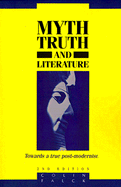Book contents
Summary
In trying to write a philosophical book about “what poetry is” I have perhaps been more likely to fall into the kinds of intellectual pretension and vacuousness which are sometimes thought to be the defects of continental-European thinking than into the opposite and rather anti-intellectual kinds of defect which are more commonly found in English-speaking literary discussions. My worst fear is that I may somehow have managed to fall into both these kinds of defect at once. It was Coleridge who, before settling into another of his long bouts of philosophical laboring, said “I hope philosophy and poetry will not neutralise each other, and leave me an inert mass.” Yet it was Coleridge also who led the way in these matters within the English tradition, and it is from him that we must find a way of going forward if these matters are to be further pursued. Apart from his famous – but soon abandoned – efforts in Biographia Literaria and elsewhere to provide a “deduction of the imagination, and with it the principles of production and of genial criticism in the fine arts,” there have been few attempts in English to explore the place which poetry or literature occupies in human life or to integrate into one argument the sometimes competing claims of literature, theology, and positive knowledge. Literary critics and reviewers, often incomparably good at their own jobs, tend to rest aggressively on their prejudices when asked to pronounce on what it is that they spend the better part of their working lives doing.
- Type
- Chapter
- Information
- Myth, Truth and LiteratureTowards a True Post-modernism, pp. xv - xxPublisher: Cambridge University PressPrint publication year: 1994



